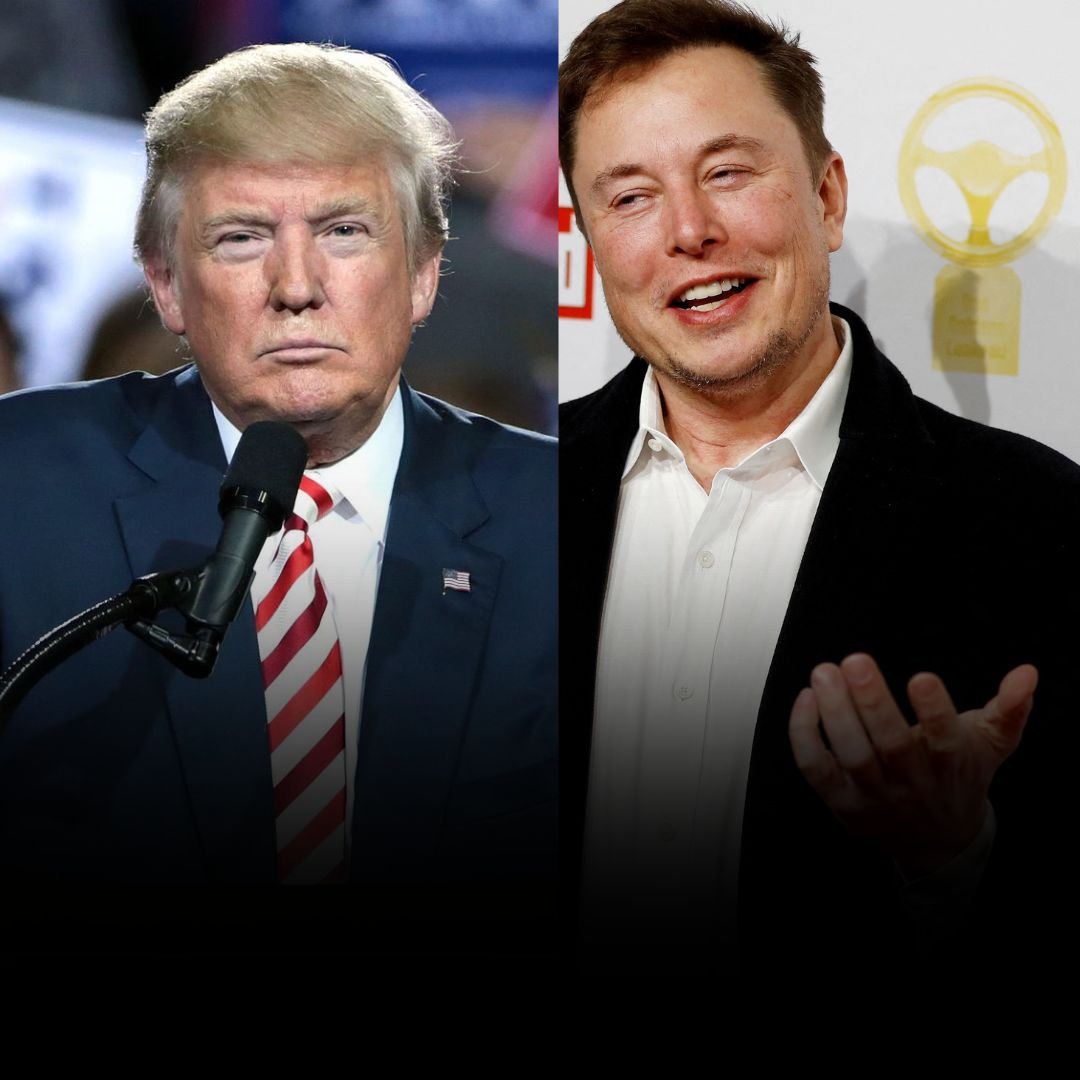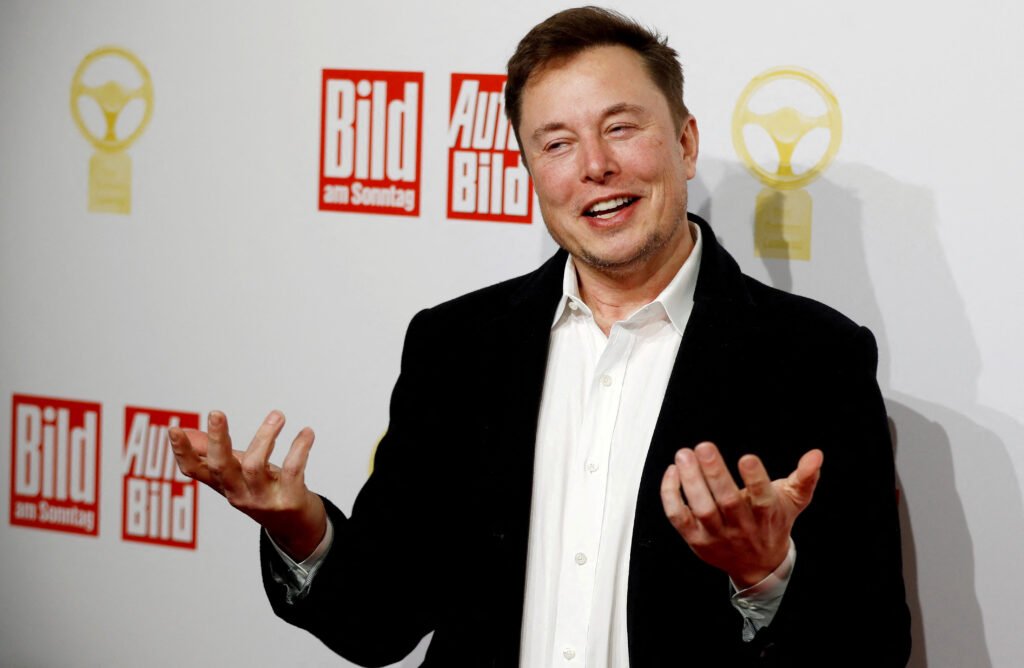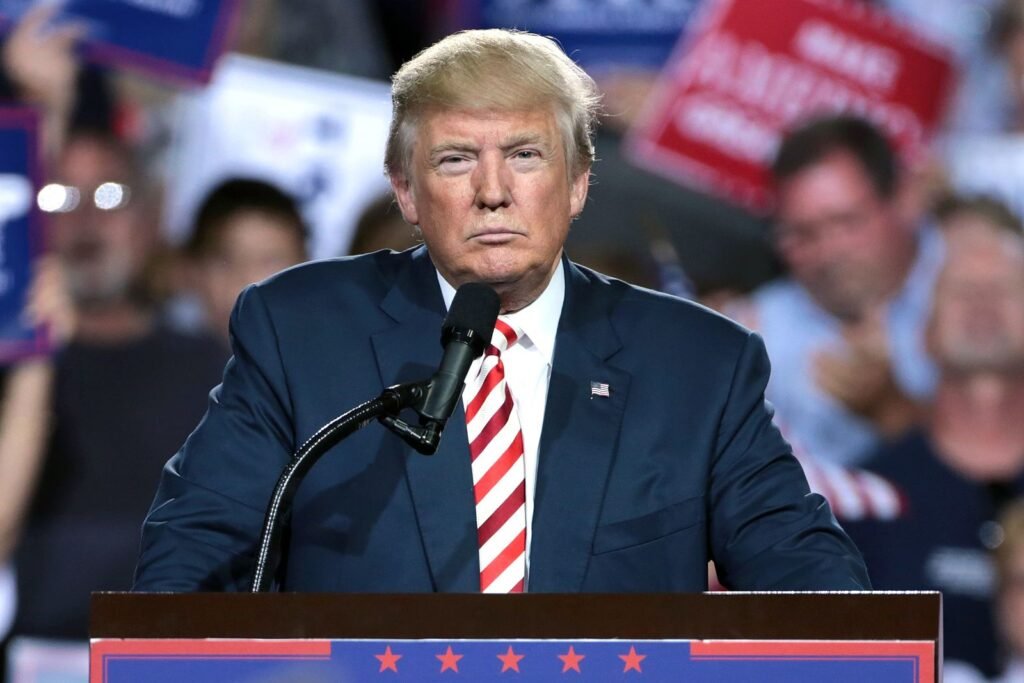Business
Former UAW leader: Biden must ‘take action’ to pressure companies for fair wages, benefits on September 16, 2023 at 2:24 pm Business News | The Hill

A former president of the United Auto Workers (UAW) union pressured President Biden to do more to assist striking auto workers, saying a lot of what he has done so far is just talk.
“I think [Biden] should have done a lot more already,” former UAW president Bob King told NewsNation‘s Chris Cuomo on Friday. “I’m happy he came out with a statement yesterday… but words are not the issue. You need to take actions.”
“What actions is he going to take to really pressure those corporations to give the workers what they deserve?” King asked.
UAW began a strike against the “Big Three” automakers — Ford, General Motors and Stellantis — early Friday morning after negotiations were fruitless before the workers’ contracts ended. The union is demanding increased wages, shorter work weeks and better retirement benefits, among other things.
“There’s a lot of anger and a lot of frustration in the UAW members because they see the corporations doing so well, they see the CEOs make 40 percent or more increases in their pay, and what I’m really proud of — the highest seniority members are as angry about this as the lowest seniority,” King said.
“Everybody in there knows it’s wrong to have people making different rates of pay for long, sustained periods of time doing the same exact job,” he added.
The Biden administration has backed the strike — the first in the union’s history — and President Biden encouraged automakers to return to the bargaining table with an increased offer on Friday.
“I believe they should go further… Record corporate profits, which they have, should be shared by record contracts for the UAW,” Biden said.
King backed current UAW President Shawn Fain’s decision not to endorse Biden for the 2024 election over concerns about federal electric vehicle (EV) policy. The former union head said too many EV jobs are moving out of areas where unions are strong, like Detroit, and into southern states with less union influence and more tax breaks for automakers.
He said he supported Fain’s decision not to endorse Biden “until he starts delivering.”
“It was a tremendous slap in the face to the UAW to give billions of dollars to these corporations,” King added.
The UAW orchestrated small-scale, randomized strikes instead of a mass general strike. The union chose three plants, revealed just two hours before the strike began, to walk out starting at midnight Friday.
Fain explained that the strategy was meant to “keep the companies guessing.”
Profits at the Big Three automakers increased by 92 percent in the last decade, totaling $250 billion, according to an analysis released Tuesday. CEO compensation rose by 40 percent through the same period.
The union reportedly rejected the latest counteroffers from all three automakers, which say the workers’ demands are not realistic and unaffordable, in part due to the cost of the shift to electric vehicles.
“We are committed to winning an agreement with the Big Three that reflects the incredible sacrifice and contributions UAW members have made to these companies,” Fain said in his Thursday address.
NewsNation is owned by Nexstar Media Group, which also owns The Hill.
The Hill’s Taylor Giorno contributed to this report.
Business, News, Bob King, labor policy, UAW, UAW strike, United Auto Workers A former president of the United Auto Workers (UAW) union pressured President Biden to do more to assist striking auto workers, saying a lot of what he has done so far is just talk. “I think [Biden] should have done a lot more already,” former UAW president Bob King told NewsNation’s Chris Cuomo on Friday….
Business
Mexican Protests: Gentrification, U.S. Migration, and Rising Tensions

Protests Erupt Over Housing and Migration in Mexico City
Mexico City has become the epicenter of growing unrest as hundreds of residents took to the streets on July 4, 2025, protesting against soaring rents, gentrification, and the increasing presence of U.S. migrants. What began as a peaceful demonstration quickly escalated, with incidents of vandalism and confrontations highlighting the depth of local frustration.

Key Drivers of the Unrest
- Gentrification and Housing Crisis:
Rents in popular neighborhoods like Condesa and Roma have surged by nearly 50% over the past five years, pricing out many long-term residents. Young people and families are particularly affected, with some forced to leave homes they have occupied for decades. - Influx of U.S. Migrants and Digital Nomads:
The arrival of affluent foreigners—especially Americans working remotely—has intensified gentrification. Many U.S. citizens take advantage of Mexico’s 180-day visa-free stay, cycling in and out to maintain residency. This has led to resentment among locals who feel displaced and unable to compete with foreign purchasing power.
- Economic Displacement:
Protesters argue that government policies favor those with higher incomes, resulting in forced or illegal evictions. Slogans like “Housing is a right, not a commodity” and “Mexico for Mexicans” were prominent during the marches. - Demands for Regulation:
Demonstrators called for stricter migration controls and for foreign residents to contribute more to the local economy, including paying fair taxes and respecting local culture.

Escalation and Official Response
- Vandalism and Confrontations:
While the protest started peacefully, a subset of demonstrators vandalized businesses—particularly those catering to foreigners—and harassed tourists. Chants of “gringo go home” and “pay taxes, learn Spanish, respect my culture” echoed through the streets as windows were smashed and property damaged. - Government Reaction:
City officials condemned the violence and emphasized Mexico City’s tradition of openness and migration. At least 15 businesses and public facilities reported damage. Authorities called for dialogue and unity, while also acknowledging the real pressures of rising rents and displacement.
Broader Context and Global Parallels
- International Pattern:
The protests in Mexico City mirror movements in cities like Barcelona and Madrid, where locals have also rallied against mass tourism and the transformation of neighborhoods by short-term rentals and foreign investment.

- Political Response:
President Claudia Sheinbaum and other leaders have addressed the unrest, rejecting xenophobia but recognizing the legitimate concerns about housing affordability and community displacement.
Summary Table
| Issue | Protester Concerns | Notable Incidents |
|---|---|---|
| Gentrification | Soaring rents, loss of affordable housing | Vandalism in Condesa, Roma |
| U.S. Migration | Displacement by digital nomads, lack of regulation | Harassment of tourists |
| Economic Displacement | Forced evictions, government favoritism | Slogans: “Housing is a right” |
| Official Response | Calls for dialogue, condemnation of violence | 15+ businesses damaged |
Conclusion
The recent protests in Mexico City reflect mounting anger over gentrification, housing insecurity, and the impact of foreign migration on local communities. As tensions rise, calls for policy reform and greater protections for residents are intensifying. City leaders face mounting pressure to balance openness with protecting the rights and livelihoods of long-term residents, signaling that the debate over Mexico’s urban future is far from over.
Business
Pros and Cons of the Big Beautiful Bill

The “Big Beautiful Bill” (officially the One Big Beautiful Bill Act) is a sweeping tax and spending package passed in July 2025. It makes permanent many Trump-era tax cuts, introduces new tax breaks for working Americans, and enacts deep cuts to federal safety-net programs. The bill also increases spending on border security and defense, while rolling back clean energy incentives and tightening requirements for social programs.

Pros
1. Tax Relief for Middle and Working-Class Families
- Makes the 2017 Trump tax cuts permanent, preventing a scheduled tax hike for many Americans.
- Introduces new tax breaks: no federal income tax on tips and overtime pay (for incomes under $150,000, with limits).
- Doubles the Child Tax Credit to $2,500 per child through 2028.
- Temporarily raises the SALT (state and local tax) deduction cap to $40,000.
- Creates “Trump Accounts”: tax-exempt savings accounts for newborns.
2. Support for Small Businesses and Economic Growth
- Makes the small business deduction permanent, supporting Main Street businesses.
- Expands expensing for investment in short-lived assets and domestic R&D, which is considered pro-growth.
3. Increased Spending on Security and Infrastructure
- Allocates $175 billion for border security and $160 billion for defense, the highest peacetime military budget in U.S. history.
- Provides $12.5 billion for air traffic control modernization.
4. Simplification and Fairness in the Tax Code
- Expands the Earned Income Tax Credit (EITC) and raises marginal rates on individuals earning over $400,000.
- Closes various deductions and loopholes, especially those benefiting private equity and multinational corporations.

Cons
1. Deep Cuts to Social Safety Net Programs
- Cuts Medicaid by approximately $930 billion and imposes new work requirements, which could leave millions without health insurance.
- Tightens eligibility and work requirements for SNAP (food assistance), potentially removing benefits from many low-income families.
- Rolls back student loan forgiveness and repeals Biden-era subsidies.
2. Increases the Federal Deficit
- The bill is projected to add $3.3–4 trillion to the federal deficit over 10 years.
- Critics argue that the combination of tax cuts and increased spending is fiscally irresponsible.
3. Benefits Skewed Toward the Wealthy
- The largest income gains go to affluent Americans, with top earners seeing significant after-tax increases.
- Critics describe the bill as the largest upward transfer of wealth in recent U.S. history.
4. Rollback of Clean Energy and Climate Incentives
- Eliminates tax credits for electric vehicles and solar energy by the end of 2025.
- Imposes stricter requirements for renewable energy developers, which could lead to job losses and higher electricity costs.

5. Potential Harm to Healthcare and Rural Hospitals
- Reduces funding for hospitals serving Medicaid recipients, increasing uncompensated care costs and threatening rural healthcare access.
- Tightens verification for federal premium subsidies under the Affordable Care Act, risking coverage for some middle-income Americans.
6. Public and Political Backlash
- The bill is unpopular in public polls and is seen as a political risk for its supporters.
- Critics warn it will widen the gap between rich and poor and reverse progress on alternative energy and healthcare.
Summary Table
| Pros | Cons |
|---|---|
| Permanent middle-class tax cuts | Deep Medicaid and SNAP cuts |
| No tax on tips/overtime for most workers | Millions may lose health insurance |
| Doubled Child Tax Credit | Adds $3.3–4T to deficit |
| Small business support | Benefits skewed to wealthy |
| Increased border/defense spending | Clean energy incentives eliminated |
| Simplifies some tax provisions | Threatens rural hospitals |
| Public backlash, political risk |
In summary:
The Big Beautiful Bill delivers significant tax relief and new benefits for many working and middle-class Americans, but it does so at the cost of deep cuts to social programs, a higher federal deficit, and reduced support for clean energy and healthcare. The bill is highly polarizing, with supporters touting its pro-growth and pro-family provisions, while critics warn of increased inequality and harm to vulnerable populations.
Business
Trump Threatens to ‘Take a Look’ at Deporting Elon Musk Amid Explosive Feud

The escalating conflict between President Donald Trump and Elon Musk reached a new peak this week, as Trump publicly suggested he would consider deporting the billionaire entrepreneur in response to Musk’s fierce criticism of the president’s signature tax and spending bill.

“I don’t know, we’ll have to take a look,” Trump told reporters on Tuesday when asked directly if he would deport Musk, who was born in South Africa but has been a U.S. citizen since 2002.
This threat followed a late-night post on Trump’s Truth Social platform, where he accused Musk of being the largest recipient of government subsidies in U.S. history. Trump claimed that without these supports, Musk “would likely have to shut down operations and return to South Africa,” and that ending such subsidies would mean “no more rocket launches, satellites, or electric vehicle production, and our nation would save a FORTUNE”.
Trump also invoked the Department of Government Efficiency (DOGE)—a federal agency Musk previously led—as a potential tool to scrutinize Musk’s companies. “We might have to put DOGE on Elon. You know what DOGE is? The DOGE is the monster that might have to go back and eat Elon,” Trump remarked, further intensifying the feud.

Background to the Feud
The rupture comes after Musk’s repeated attacks on Trump’s so-called “Big, Beautiful Bill,” a comprehensive spending and tax reform proposal that Musk has labeled a “disgusting abomination” and a threat to the nation’s fiscal health. Musk, once a Trump ally who contributed heavily to his election campaign and served as a government advisor, has called for the formation of a new political party, claiming the bill exposes the need for an alternative to the current two-party system.
In response, Trump’s allies have amplified questions about Musk’s citizenship and immigration history, with some suggesting an investigation into his naturalization process. However, legal experts note that deporting a naturalized U.S. citizen like Musk would be extremely difficult. The only path would involve denaturalization—a rare and complex legal process requiring proof of intentional fraud during the citizenship application, a standard typically reserved for the most egregious cases.
Political Fallout
Musk’s criticism has rattled some Republican lawmakers, who fear the feud could undermine their party’s unity ahead of the 2026 midterm elections. Meanwhile, Musk has doubled down on his opposition, warning he will support primary challengers against Republicans who back Trump’s bill.
Key Points:
- Trump has publicly threatened to “take a look” at deporting Elon Musk in retaliation for Musk’s opposition to his legislative agenda.
- Legal experts say actual deportation is highly unlikely due to the stringent requirements for denaturalizing a U.S. citizen.
- The feud marks a dramatic reversal from the pair’s earlier alliance, with both men now trading barbs over social media and in public statements.
As the dispute continues, it has become a flashpoint in the broader debate over government spending, corporate subsidies, and political loyalty at the highest levels of American power.

 Advice2 weeks ago
Advice2 weeks agoWhat SXSW 2025 Filmmakers Want Every New Director to Know

 Business5 days ago
Business5 days agoPros and Cons of the Big Beautiful Bill

 Film Industry3 weeks ago
Film Industry3 weeks agoFilming Yourself and Look Cinematic

 News1 week ago
News1 week agoFather Leaps Overboard to Save Daughter on Disney Dream Cruise

 Politics4 weeks ago
Politics4 weeks agoBolanle Newsroom Brief: Israel Strikes Iran’s Nuclear Sites — What It Means for the World

 Health1 week ago
Health1 week agoMcCullough Alleges Government Hid COVID Vaccine Side Effects

 Advice2 weeks ago
Advice2 weeks agoWhy 20% of Us Are Always Late

 Entertainment3 weeks ago
Entertainment3 weeks agoThe Hidden Reality Behind Victoria’s Secret





























